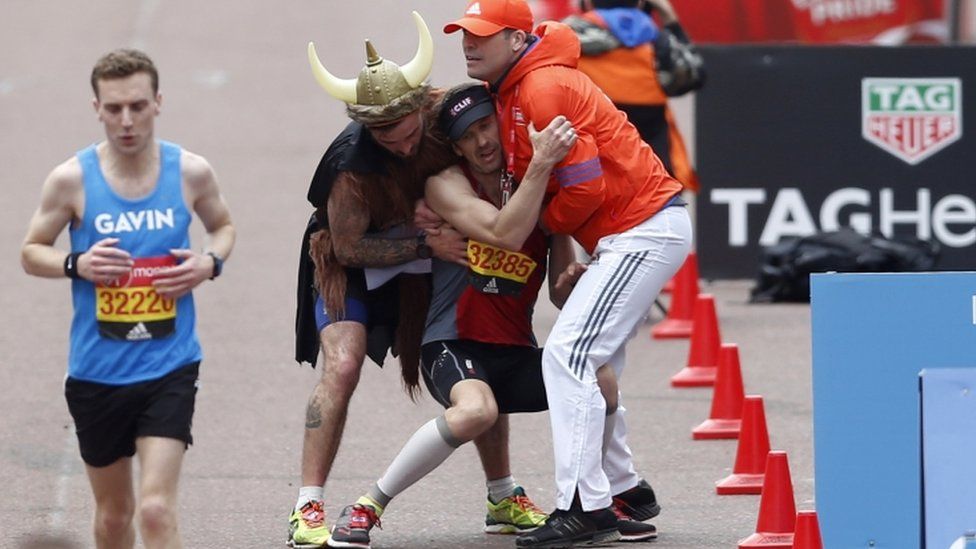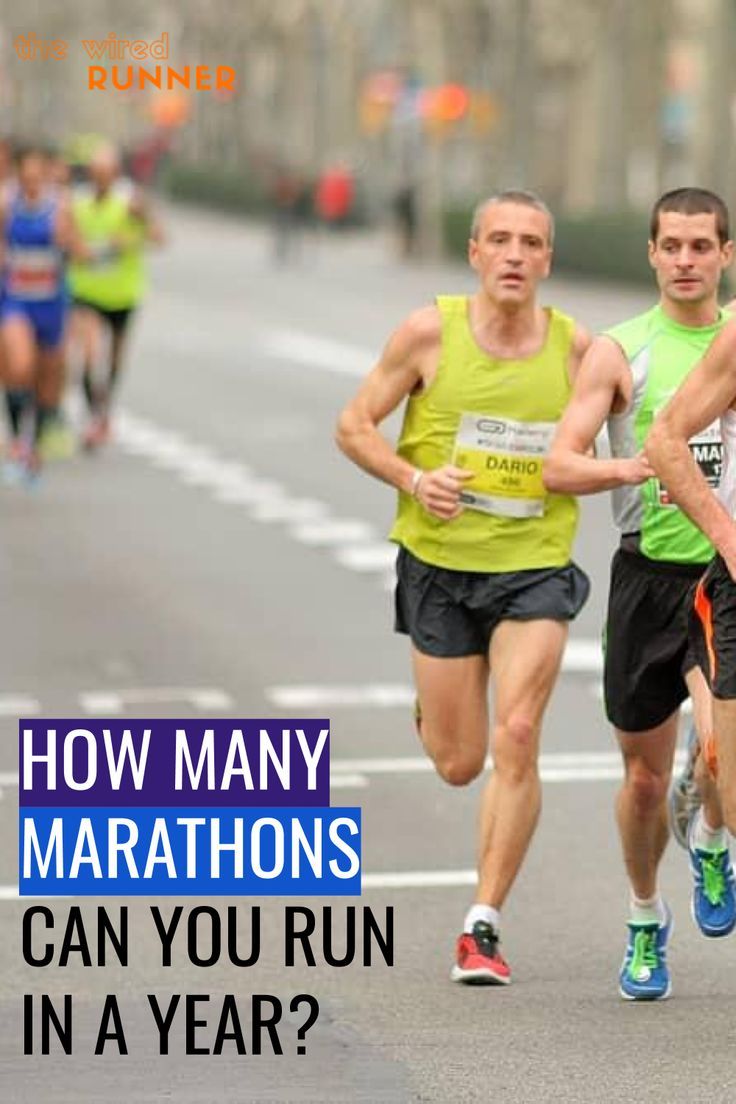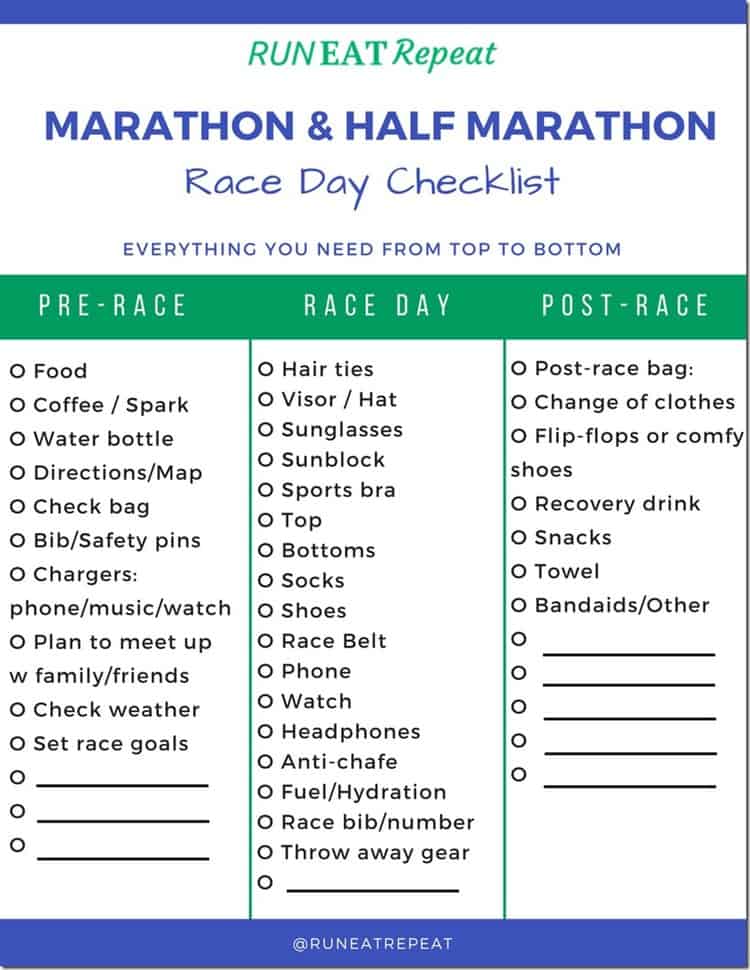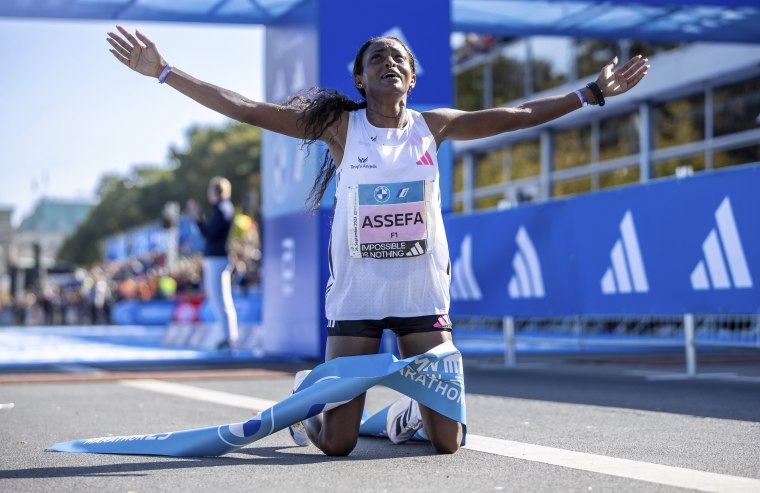What Causes Marathon Runners to Collapse
Marathon runners collapse due to a combination of dehydration, electrolyte imbalance, and overheating. These factors can lead to heat exhaustion or heatstroke, causing the body to shut down.
Marathon runners are highly susceptible to collapse due to various factors such as dehydration, electrolyte imbalance, and overheating. These issues can trigger heat exhaustion or heatstroke, leading the body to shut down. While physical fitness plays a crucial role in marathon running, inadequate hydration and improper electrolyte levels can cause critical disruptions in the body’s functioning, ultimately resulting in collapse.
Understanding the specific reasons behind these collapses is essential for both runners and event organizers to prevent such incidents and ensure the safety of all participants. In this piece, we will explore the primary causes of marathon runners collapsing, shedding light on the importance of proper preparation and precautions for endurance athletes.

Credit: www.studypool.com
Factors Contributing To Marathon Runners’ Collapse
Participating in a marathon is a test of endurance and mental strength. However, there are several factors that can contribute to marathon runners collapsing during the race. Understanding these factors is crucial for both runners and organizers to prevent such incidents. In this article, we will explore three main factors that can potentially cause runners to collapse: Physical Exertion, Dehydration, and Heat Exhaustion.
Physical Exertion
Physical exertion plays a significant role in marathon runners’ collapse. During a marathon, runners push their bodies to the limit, subjecting themselves to intense strain and fatigue. The repetitive motion of running for long distances can put immense stress on the muscles and joints, leading to muscle cramps, spasms, and even muscle damage. This can cause the body to shut down, resulting in collapse.
Moreover, excessive physical exertion can also lead to a drop in blood sugar levels and a depletion of glycogen stores in the muscles. When these energy sources are not replenished adequately, runners may experience weakness, dizziness, and eventually collapse. It is crucial for runners to train appropriately, gradually increasing their endurance levels to avoid overwhelming their bodies during the marathon.
Dehydration
Dehydration is another common factor contributing to marathon runners’ collapse. Running for extended periods causes excessive sweating, leading to the loss of vital fluids and electrolytes from the body. When runners fail to replace these fluids adequately, dehydration sets in and can lead to various health complications.
As the body becomes dehydrated, blood volume decreases, making it harder for the heart to pump oxygen and nutrients to the muscles. This results in decreased performance, fatigue, and a higher risk of collapsing. It is vital for runners to hydrate properly before, during, and after the marathon, ensuring they replenish lost fluids and electrolytes to maintain optimal performance.
Heat Exhaustion
Heat exhaustion is a severe condition that can occur when marathon runners are exposed to high temperatures and excessive heat for an extended period. Running in hot conditions increases the body’s core temperature, causing it to overheat. The body responds by redirecting blood flow to the skin to cool down, which diverts blood away from vital organs and muscles, compromising their functioning.
As the body struggles to regulate temperature, runners may experience symptoms such as dizziness, confusion, nausea, and even collapse. It is crucial for organizers to consider the weather conditions and take necessary precautions to prevent heat-related illnesses and ensure runners’ safety.
To minimize the risk of collapse during a marathon, it is essential for runners to listen to their bodies, practice good nutrition and hydration, and train appropriately. Organizers must also prioritize runner safety by providing adequate medical support and maintaining a constant focus on environmental conditions. By addressing these factors, we can help create a safe and enjoyable marathon experience for all participants.

Credit: curriculum.newvisions.org
Preventive Measures For Marathon Runners
Hydration Strategies
Proper hydration is crucial for marathon runners as dehydration can lead to fatigue and collapse. Maintaining a proper balance of water and electrolytes is essential to sustain energy levels. Runners should drink small amounts of water frequently during the race to stay hydrated rather than gulping large amounts at once, which can lead to discomfort or sloshing in the stomach. It is also important to consider electrolyte replacement drinks or gels that provide the necessary sodium, potassium, and other minerals that are lost through sweat. By maintaining proper hydration, marathon runners can reduce the risk of collapsing due to dehydration.
Proper Training Techniques
Training is essential for preparing the body for the physical demands of a marathon. Incorporating a gradual increase in mileage, speed work, and strength training into the training regimen can help build endurance, strength, and resilience. It is important for runners to listen to their bodies and not push beyond their limits, as overtraining can lead to exhaustion and collapse during a race. By utilizing proper training techniques, marathon runners can condition their bodies to handle long distances and reduce the likelihood of collapsing from physical exhaustion.
Recognizing Early Signs Of Trouble
When it comes to marathon running, recognizing early signs of trouble in runners is crucial for their well-being. Identifying these symptoms can help prevent more serious health issues. Here are some key signs to watch out for:
Dizziness And Lightheadedness
Dizziness and lightheadedness are common early signs that a runner may be in distress. If a runner appears disoriented, unsteady, or complains of feeling dizzy, it’s essential to take immediate action. Encourage the runner to stop and rest, and if necessary, seek medical attention.
Muscle Cramps
Muscle cramps can indicate dehydration or muscle fatigue. If a runner experiences sudden, intense muscle contractions, particularly in the legs or abdomen, assist them in stretching the affected muscle and offer water or a sports drink. Encourage the runner to slow down or walk until the cramping subsides.
Immediate Response To Runner Collapse
A runner collapsing during a marathon can be a scary and alarming situation. It’s important to stay calm and take immediate action to ensure the runner’s safety and well-being. The following steps outline the proper response to a runner collapse:
Calling For Medical Help
If you witness a runner collapse, the first thing to do is call for medical help. Dial emergency services or notify the nearest race volunteer or medical personnel onsite. Quick action is crucial to getting the necessary medical assistance.
Providing First Aid
While waiting for medical help to arrive, it’s important to provide immediate first aid to the collapsed runner. Here are some steps to follow:
- Evaluate the runner’s condition by checking for responsiveness and breathing.
- If the runner is unresponsive and not breathing, it is necessary to start cardiopulmonary resuscitation (CPR) immediately. If you are trained in CPR, begin chest compressions and rescue breaths.
- If the runner is responsive and breathing, place them in the recovery position. This is done by turning the runner onto their side and supporting their head and neck.
- Make sure the collapsed runner is comfortable and provide reassurance while waiting for medical professionals to arrive.
Remember, in emergency situations like a runner collapse, time is of the essence. Following these steps and seeking medical help promptly can make a significant difference in the outcome for the runner.
Post-collapse Care And Recovery
Marathon runners may collapse due to dehydration, heat exhaustion, or overexertion during a race. Post-collapse care and recovery include immediate medical attention, rehydration, and monitoring for potential complications. Understanding the causes of collapse is crucial for preventing and managing such incidents effectively.
Medical Evaluation
Nutrition And Rest
Post-Collapse Care and Recovery After a marathon runner collapses due to exhaustion, receiving prompt medical evaluation is essential. Upon collapsing, immediate medical attention is crucial to assess the runner’s condition. An on-site medical team should evaluate vital signs and address any potential underlying medical conditions.Medical Evaluation
Runners should undergo a thorough medical assessment post-collapse. Medical professionals will evaluate heart rate and hydration levels. Monitoring vital signs and oxygen levels ensures timely intervention if needed. An ECG may be necessary to detect any cardiac abnormalities.Nutrition And Rest
Proper nutrition and adequate rest are paramount to recovery. Replenishing electrolytes and fluids is crucial post-collapse. Consuming foods high in carbohydrates and proteins supports muscle repair and recovery. Rest and sleep are vital to allow the body to heal.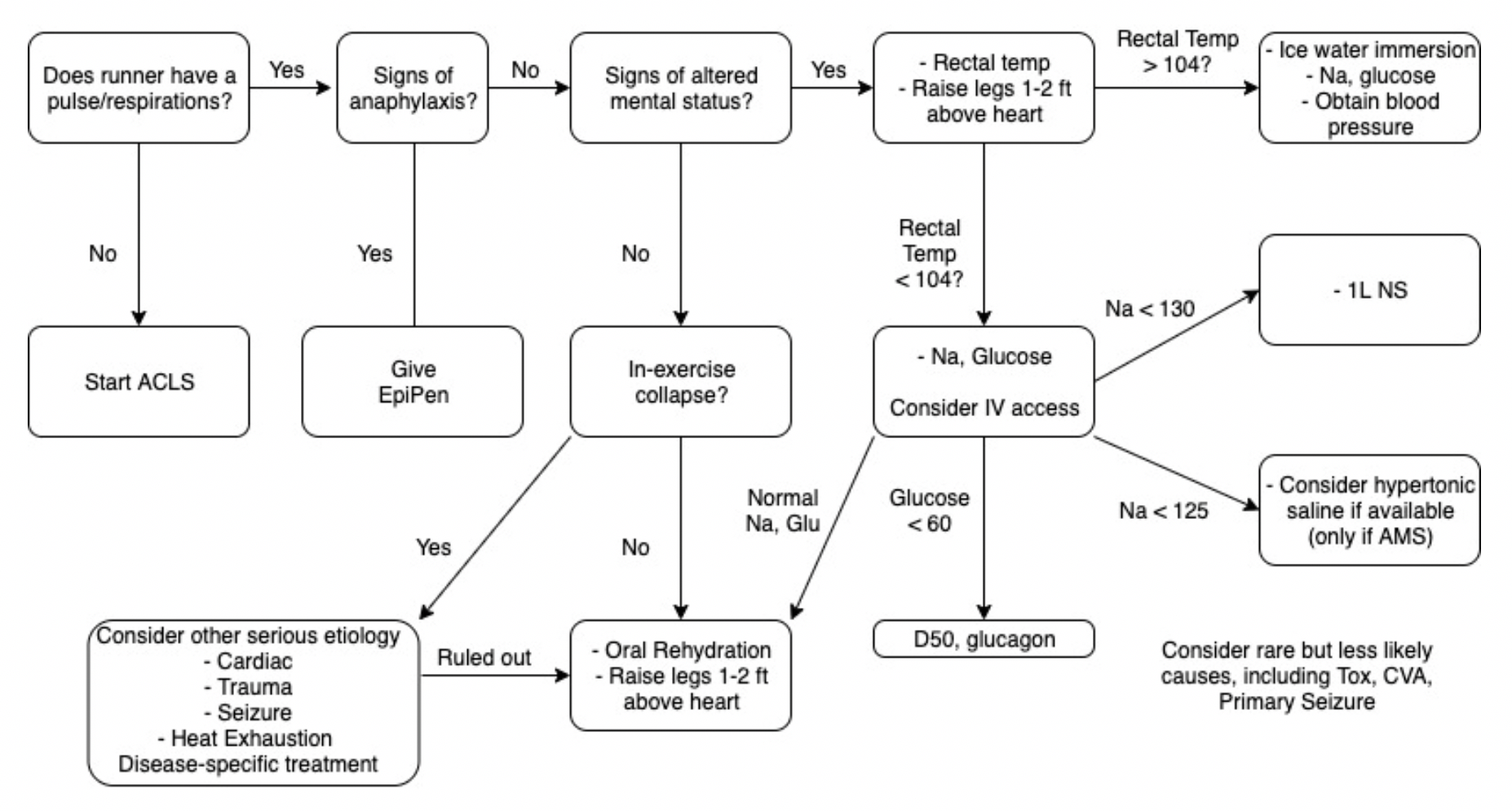
Credit: www.nuemblog.com
Frequently Asked Questions For What Causes Marathon Runners To Collapse
Why Might A Marathon Runner Collapse?
A marathon runner could collapse due to dehydration, exhaustion, heatstroke, or cardiac issues. It is crucial for runners to stay hydrated, pace themselves properly, and monitor their health during races.
What Body Processes During A Marathon Might Cause A Runner To Collapse?
During a marathon, the body’s processes such as dehydration, heat exhaustion, and overexertion can cause a runner to collapse. These conditions can lead to a drop in blood pressure, electrolyte imbalance, and muscle fatigue, increasing the risk of collapsing during the race.
Why Do People Faint During Marathon?
People faint during marathons due to low blood pressure and dehydration. Prolonged physical exertion can lower blood pressure and lead to fainting. Dehydration can also disrupt the body’s balance and cause fainting. Proper hydration and pacing can help prevent fainting during marathons.
Conclusion
Marathon runners collapsing during races can be attributed to various factors, such as dehydration, heat exhaustion, and overexertion. It is crucial for runners to understand the importance of proper hydration and pacing themselves during training and races. Incorporating strategies like adequate rest, nutrition, and listening to their bodies can help prevent collapse and ensure a safer running experience.
Awareness and preparation are key in avoiding such incidents and promoting overall well-being in marathon running.

